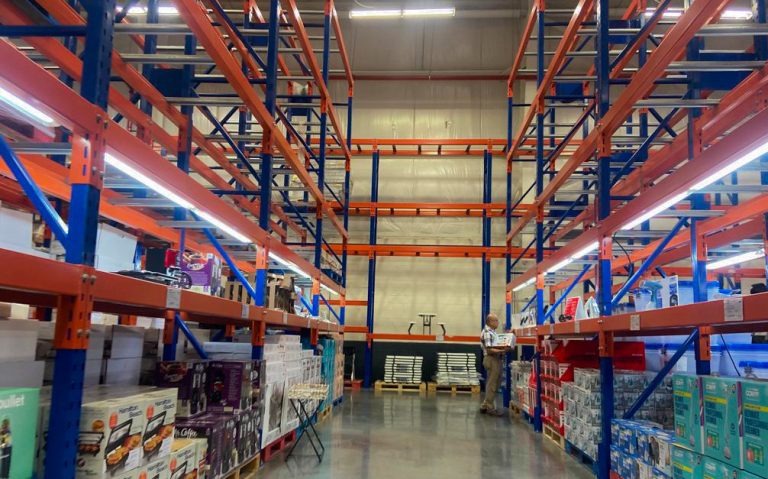27 de junio 2023

Children of Exile: The Births “Sowing Hope” in the Camp of Nicaraguan Farmers

PUBLICIDAD 1M
PUBLICIDAD 4D
PUBLICIDAD 5D

Vista de unos estantes vacíos en el local de Carretera a Masaya de la transnacional PriceSmart. Foto: Confidencial
Customs Services Administration (DGA) authorities are retaining between 25 and 30 containers with merchandise owned by the transnational chain PriceSmart, according to at least five of commerce executives and customs agents who spoke to CONFIDENCIAL on the condition of anonymity.
The warehouse retail chain, known as a "shopping club" with two branches in Managua, did not respond to a request for information from CONFIDENCIAL.
A source from the import sector reported that up until Tuesday, June 20, 2023 "they had applied customs value doubts to PriceSmart imports entering through Peñas Blancas." This means that the company has not been able to bring its products into the country for at least a month "because they are in discussions with Customs about the duties being imposed on its imports in past months."
The result is that more than twenty containers with products coming from Puerto Caldera (Costa Rica), Panama, or from Costa Rican industries have been stopped from passing through Peñas Blancas in the last four weeks.
There are a large number of unusually empty shelves at the Carretera Masaya PriceSmart location in the electrical and household goods section. There are no shortages in the food sections, except for some products such as canned tuna, eggs and some brands of chips.
Throughout the past several years, business leaders have consistently denounced the extortion campaign implemented by the DGA, as well as by the General Revenue Services Administration (DGI) and municipal governments, especially Managua City Hall. The campaign is aimed at illegally increasing tax collections and asking businesses for money in order to not impose fines.
The "strategy" to withhold merchandise from PriceSmart –or any large company that has the capacity to pay large sums of money– is based on dictating "doubts of value", which under the rule of law occurs when the customs administration has legitimate reasons to suppose that the true purchase price of the merchandise acquired abroad is greater than that declared by the importer. However, in the case of Nicaragua, it is usually nothing more than a way to extort money from the companies.
"Doubts of value are already normal," the import sector source said. "Almost nothing enters without value doubts, because Customs is imposing them on everything, but there is a protocol to get the products through. The anomaly is that they have not been able to clear" their merchandise through customs.
However, a source in the commercial sector did not rule out that PriceSmart and other importing companies are being audited for their imports in recent years, and are facing strong pressure from the DGI for the imposition of a new system for calculating the advance payment of income tax.
Two other sources with ample experience in the sector agreed both on the fact that the imposition of value doubts is "normal", as well as about how easy it is to clear the merchandise if the administrative procedure is followed.
"I couldn't tell you what kind of problems they're having, but if there were cases of doubt of value, to request release they'd have to comply with the process or request release with an advance deposit. If the problem has to do with objections, I don't know what the objections are about," said a customs executive. Another source said that he knows that "PriceSmart... is being charged for doubts of value, but only the agencies that deal with them know exactly what the issue is."
A customs expert, who also requested anonymity, acknowledged that "lately, doubts of value have increased considerably, but companies provide a guarantee deposit, and then can clear customs and have access to their merchandise."
This article was originally published in Spanish in Confidencial and translated by our staff.
PUBLICIDAD 3M
Periodista nicaragüense, exiliado en Costa Rica. Durante más de veinte años se ha desempeñado en CONFIDENCIAL como periodista de Economía. Antes trabajó en el semanario La Crónica, el diario La Prensa y El Nuevo Diario. Además, ha publicado en el Diario de Hoy, de El Salvador. Ha ganado en dos ocasiones el Premio a la Excelencia en Periodismo Pedro Joaquín Chamorro Cardenal, en Nicaragua.
PUBLICIDAD 3D